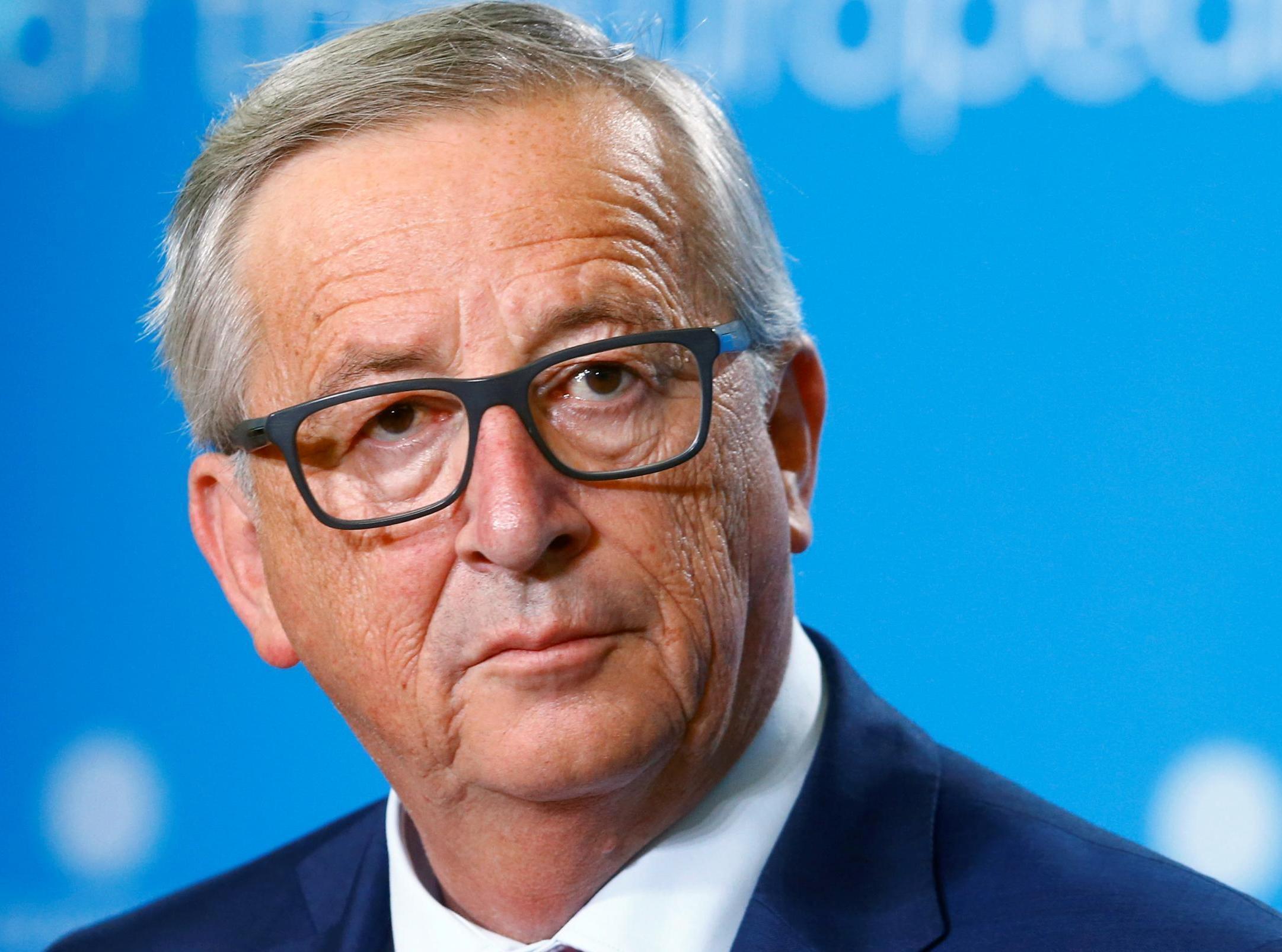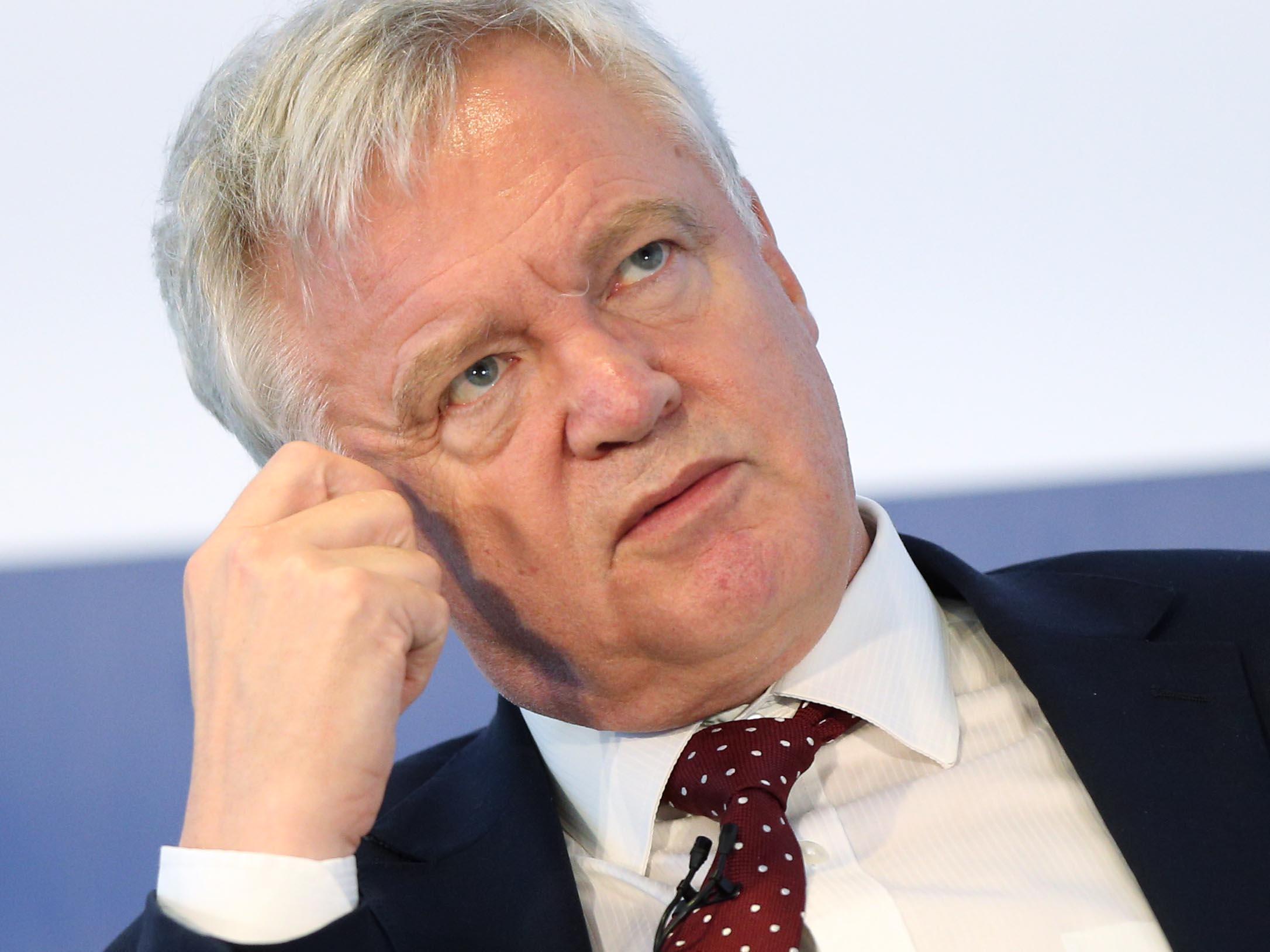Britain’s Brexit position papers are not good enough, EU president Jean-Claude Juncker says
The EU has continued to ratchet up its rhetoric against Britain's negotiation team

Your support helps us to tell the story
From reproductive rights to climate change to Big Tech, The Independent is on the ground when the story is developing. Whether it's investigating the financials of Elon Musk's pro-Trump PAC or producing our latest documentary, 'The A Word', which shines a light on the American women fighting for reproductive rights, we know how important it is to parse out the facts from the messaging.
At such a critical moment in US history, we need reporters on the ground. Your donation allows us to keep sending journalists to speak to both sides of the story.
The Independent is trusted by Americans across the entire political spectrum. And unlike many other quality news outlets, we choose not to lock Americans out of our reporting and analysis with paywalls. We believe quality journalism should be available to everyone, paid for by those who can afford it.
Your support makes all the difference.The position papers produced by the British government to set out of its stances on different Brexit issues are not “satisfactory”, the president of the European Commission has said.
Speaking at a conference of EU ambassadors on Tuesday morning Jean-Claude Juncker said there were still an “enormous” number of issues to be settled in negotiations, which have re-started this week.
His comments follow criticism of the UK’s “ambiguity” in negotiations by EU chief negotiator Michel Barnier on Monday afternoon.
The UK Government has spent the August political lull publishing a series of position papers setting out the British side’s stance on issues like the Northern Ireland border and how regulations will function after Brexit.
The papers, which have been criticised for containing gaps on subjects such as the so-called “divorce bill” Britain is said to owe, follow a series of EU papers laying out the bloc’s position.
But Mr Juncker told the ambassador’s conference on Tuesday morning: “I would like to be clear that I did read with the requisite attention all the papers produced by Her Majesty’s government and none of those is actually satisfactory.
“So there’s still an enormous amount of issues which remain to be settled. Not just on the border problems regarding Ireland and Northern Ireland, which is a very serious problem in respect of which we’ve had no definitive response, but we also have the status of European citizens living in the UK and UK citizens living on the continent.
“We need to be crystal clear that we will commence no negotiations on the new relationship particularly the new economic and trade relationship between the UK and the EU before all these questions are resolved – that is to say the divorce between the EU and the UK.”
Asked what about the papers had failed to satisfy Mr Juncker, a European Commission spokesperson told reporters in Brussels: “I will not go beyond what president Juncker said this morning. When the president speaks we never interpret or go beyond that.”
Mr Juncker’s criticism reflects a strengthening of rhetoric by the European Commission against Britain since the resumption of talks. Chief negotiator Mr Barnier said on Monday in a joint press conference with UK Brexit Secretary David Davis that he was “concerned” at the progress so far and that the UK needed to begin “negotiating seriously”. “We need UK positions on all separation issues. This is necessary to make sufficient progress. We must start negotiating seriously,” he said.
“We need UK papers that are clear in order to have constructive negotiations and the sooner we remove the ambiguity, the sooner we will be in a position to discuss the future relationship and the transitional period.”

David Davis, the UK’s Brexit Secretary, by contrast said he wanted to see “flexibility and imagination on both sides” – a line his Department for Exiting the European Union has previously used. Defending the UK’s position papers, the minister said they were the product of “hard work and detailed thinking that has been going on behind the scenes” for the last year.
Speaking two weeks ago Mr Davis himself had described the inscrutable parts of the UK position as “constructive ambiguity”.
The European Union says it must judge there to be “sufficient progress” in three key separation areas by October for negotiations to move onto the subject of the future UK-EU relationship. The areas chosen by the EU are citizen rights, Northern Ireland’s border, and the divorce bill owed by the UK.
Mr Juncker is set to meet former Prime Minister Tony Blair in Brussels this week while Brexit talks are still ongoing.
Join our commenting forum
Join thought-provoking conversations, follow other Independent readers and see their replies
Comments